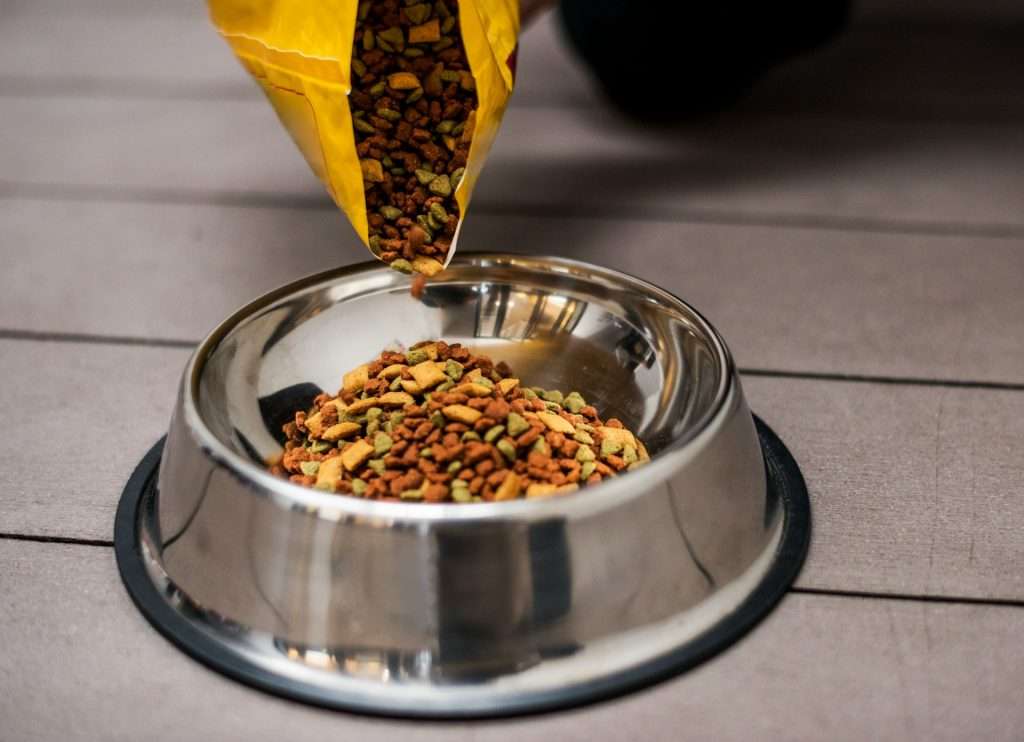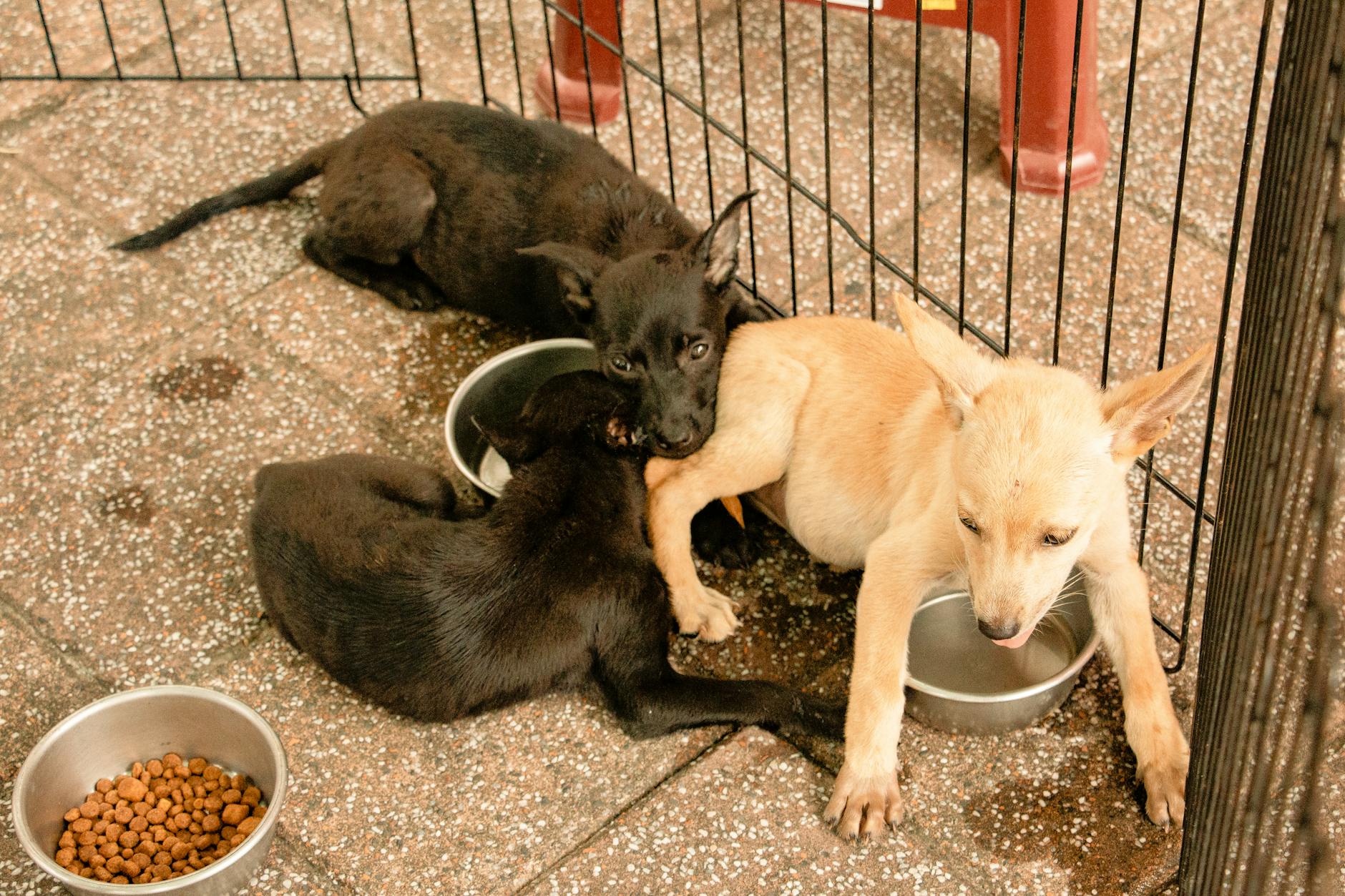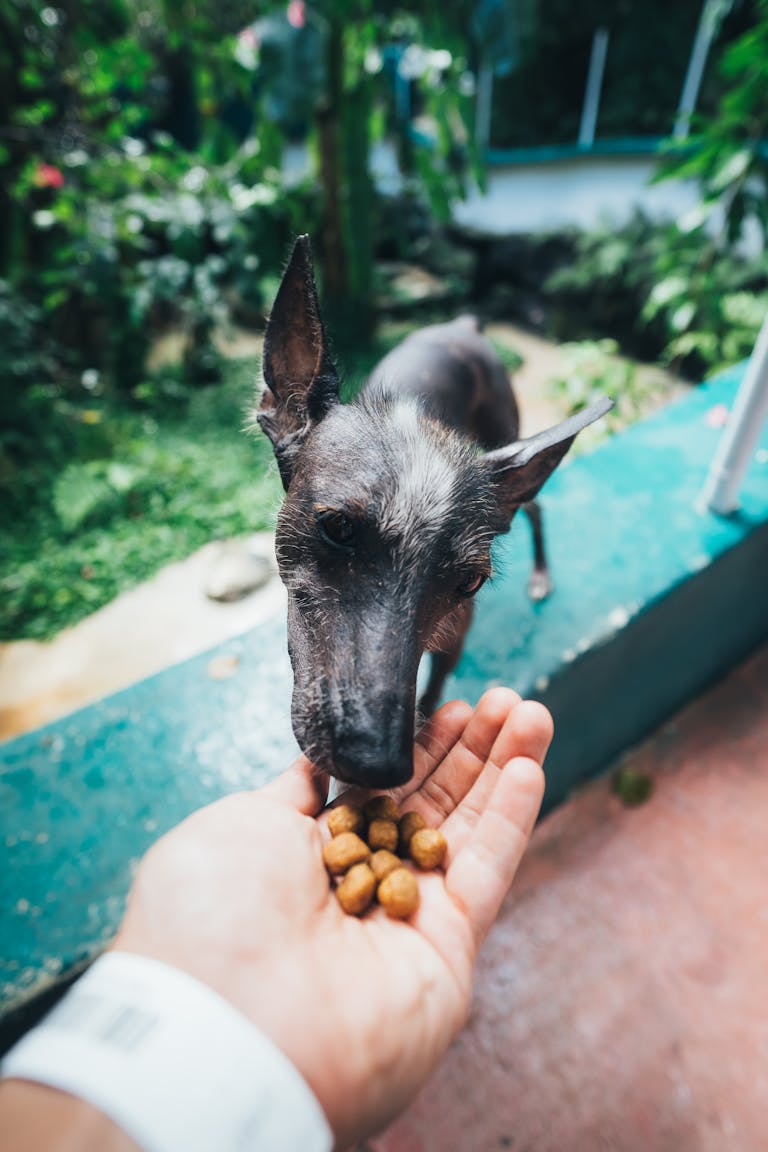Best Dog Food for Boxers

Boxers are energetic, loyal, and full of personality, but their dietary needs can be unique. Their high energy levels, muscular build, and predisposition to specific health issues mean they require the right food to thrive. Selecting the best dog food ensures they get the nutrients they need for a shiny coat, strong muscles, and overall good health.
We’ve got you covered if you’re wondering what works best for your Boxer. Whether it’s managing sensitivity or fueling their active lifestyle, learning about their needs is the first step. For more tips on caring for different breeds, check out this guide.
Table of Contents
Understanding the Nutritional Needs of Boxers
Boxers are known for their high energy and athletic build, making their dietary needs unique and essential to their well-being. Proper nutrition is the cornerstone of maintaining an active lifestyle, supporting muscle growth, and avoiding common health issues. Let’s explore the key nutritional components your Boxer needs each day.
Protein Requirements: The Muscle-Building Fuel
Boxers are lean, muscular dogs that need high-quality protein to maintain their physical strength and energy levels. Protein is the building block for muscle tissue and is crucial for repair and growth after a day of play or exercise.
- Sources of high-quality protein: Look for chicken, beef, lamb, or fish as the main ingredient in your dog’s food. These provide essential amino acids for muscle support.
- How much protein is enough? Adult Boxers typically need at least 22-25% protein in their diet, while puppies may require a bit more.
- Why does quality matter? Low-grade proteins, like by-products, might not provide the amino acids your Boxer needs.
Incorporating high-quality protein ensures your Boxer stays strong and energetic no matter the activity.

Photo by Cottonbro Studio
Fat and Carbohydrates: The Energy Providers
Fats and carbohydrates are the primary energy sources for Boxers, who are always on the go. Together, they help fuel their active lifestyle.
- Healthy fats: Omega-3 and Omega-6 fatty acids in fish oil, flaxseed, and chicken fat support coat health and brain function.
- Carbohydrate choices: Whole grains like oats and brown rice are digestible and energy-efficient, while sweet potatoes provide fiber and nutrients.
- Calorie needs: Active Boxers often require 1,500–2,000 calories daily, depending on their activity level and weight.
Balancing fats and carbs ensures your Boxer has sustained energy throughout the day without unnecessary weight gain.
Vitamins and Minerals: The Silent Helpers
Vitamins and minerals may not sound exciting, but they are critical in keeping your Boxer healthy.
- Calcium and phosphorus: Essential for strong bones and teeth. It is beneficial for growing Boxer puppies.
- Vitamin E and selenium Act as antioxidants, protecting cells from damage and boosting immunity.
- Zinc: Aids in skin health and a shiny coat.
- Magnesium: Helps with muscle function and energy production.
Selecting dog food with a complete vitamin and mineral profile ensures your pup isn’t missing these vital nutrients. For more insights on breed-specific nutrition, you can explore this guide.
Focusing on these nutritional components will give your Boxer a solid foundation for a happy and active life. Let’s keep them wagging their tails and loving life!
Top Dog Food Brands for Boxers
When feeding your Boxer, the right dog food can make all the difference. Not all brands are created equal, and Boxers need specialized nutrition to support their active lifestyles and unique needs. Let’s look at three highly regarded dog food brands tailored for Boxers.
Brand A: Ingredient Breakdown
One of the standout dog food options for Boxers is Royal Canin Boxer Adult Dry Dog Food. This formula is explicitly crafted for purebred Boxers aged 15 months and older. What makes it a top choice? It’s all about the ingredients.
- Specialized kibble shape: Designed for Boxer’s unique jaw shape, making it easier for them to pick up and chew.
- High-quality protein: Packed with L-carnitine to support healthy muscle mass.
- Nutrient blend: Includes taurine and omega fatty acids to promote a healthy heart and shiny coat.
The precise formulation of this brand caters directly to many of the common health concerns Boxer’s face, such as cardiac sensitivity. Learn more about this product on the Royal Canin website.

Photo by Jackson Jorvan
Brand B: Nutritional Analysis
Wellness CORE Grain-Free Large Breed Formula is worth considering for those seeking excellent nutritional value. This food is packed with protein and formulated to meet the energy needs of active dogs like Boxers.
- Protein powerhouse: Deboned chicken and turkey meal are the first ingredients.
- Grain-free recipe: Ideal for dogs with sensitivities or allergies.
- Added benefits: Includes glucosamine and chondroitin for joint support.
This balanced blend of proteins, fats, and nutrients ensures your Boxer remains fueled and healthy. It’s been highlighted as one of the top options for Boxers by Dog Food Advisor.
Brand C: Customer Reviews and Feedback
Another popular choice is the Purina Pro Plan Sport Formula. Many Boxer owners swear by its effectiveness in maintaining their dogs’ energy levels and overall health.
- Positive feedback: Owners report improved coat shine and sustained energy in their dogs.
- Great value: Affordable compared to many premium brands, yet doesn’t skimp on quality.
- Vet recommended: Often suggested due to its balanced nutrition profile.
A Boxer owner on Boxer Forums shared their success story with this brand, noting significant improvements in their dog’s activity levels and digestion.
By providing tailored nutrition and hearing from actual owners, these brands stand out as excellent options for Boxers. Remember, every Boxer is different, so choose what works best for your loyal companion! Check out this helpful Boxer Breed Guide for more care tips and insights.
Homemade Dog Food for Boxers
Crafting homemade meals for your Boxer can be a game-changer in their overall health. Not only can you control the ingredients, but you can also customize the meals to fit their specific nutritional needs. Plus, it’s a great way to ensure your furry friend avoids unnecessary fillers or allergens commonly found in commercial dog foods.
Benefits of Homemade Diets
Preparing food at home for your Boxer offers several advantages you won’t get from store-bought brands.
- Ingredient Control: You decide what goes into your dog’s bowl. This means no harmful additives, fillers, or preservatives.
- Customization: Whether your Boxer has allergies, a sensitive stomach, or prefers certain flavors, you can tailor every meal. Need ideas for dogs with tummy troubles? Check out dog food for sensitive stomachs.
- Freshness: Homemade meals are naturally fresher, preserving the nutritional value of key ingredients.
- Bonding Experience: Cooking for your Boxer can strengthen the bond you share. It’s not just feeding—it’s love in every bite.
However, it’s critical to ensure meals are balanced. Consult a vet or canine nutritionist to ensure you cover all the nutritional bases.
Essential Recipes for Boxers
Homemade recipes can initially seem intimidating, but with proper guidelines, they become manageable. Below are two simple recipes designed to meet the unique dietary needs of Boxers.
Recipe 1: Boxer-Power Bowl
This recipe is high in protein and veggies—great for maintaining your Boxer’s muscular build and energy.
Ingredients:
- 1 lb ground beef (lean)
- 2 cups cooked brown rice
- 1/2 cup peas
- 1/2 cup carrots (steamed and diced)
- 1 tbsp fish oil (for Omega-3s)
Instructions:
- Brown the ground beef in a skillet over medium heat. Drain excess fat.
- Mix the cooked rice, peas, and carrots into the beef.
- Stir in fish oil for added nutrients.
- Let it cool completely before serving. Store leftovers in an airtight container in the fridge for up to 3 days.
For additional inspiration and meal prep tips, explore Dale’s Recipe.
Recipe 2: Chicken and Veggie Medley
This recipe is packed with protein and fiber and promotes good digestion and steady energy.
Ingredients:
- 1 lb boneless, skinless chicken breasts
- 1 cup diced sweet potatoes
- 1/2 cup spinach (lightly cooked)
- 1 tbsp olive oil
Instructions:
- Boil chicken breasts and shred them into small pieces after cooling.
- Steam the sweet potatoes and lightly cook the spinach.
- Mix the shredded chicken, sweet potatoes, and spinach in a large bowl.
- Add olive oil and stir well. Serve fresh or refrigerate for later use.
Need more ideas? Check out this community discussion on Boxer Forums for tips from experienced owners.

Photo by Kristina Snowasp
Starting with homemade dog food may feel overwhelming, but with some practice and guidance, it becomes a rewarding experience for you and your Boxer. Stay tuned—next, we’ll discuss how to supplement these meals for optimal health.
Common Health Issues in Boxers and Dietary Solutions
Boxers are incredible companions, known for their playful energy and affectionate nature. However, as with any breed, they come with their own set of unique health challenges. Many of these issues can be managed—or even prevented—through a properly balanced diet tailored to their needs. Let’s explore two key health concerns in Boxers and how nutrition plays a role.
Obesity and Diet Management
Boxers are an active breed, but their love for food and insufficient exercise can lead to obesity. Extra weight isn’t just an aesthetic problem—it strains joints, impacts heart health, and reduces overall quality of life.
How to Manage Weight with Food Choices:
- Portion Control: Measure your dog’s daily intake to avoid overfeeding. Use calorie calculators to determine their needs based on size and activity.
- Choose Lean Proteins: Focus on recipes or dog food with chicken or fish as the primary protein source to keep calories low while providing essential amino acids.
- High-Fiber Ingredients for Satiety: Including brown rice, sweet potatoes, or pumpkin can help your Boxer feel full longer without adding excessive calories.
- Watch for Hidden Calories: Treats can add up fast. Opt for low-calorie rewards like carrots or plain rice cakes.
Switching to weight management formulas can be helpful. You can find more recommendations for dietary adjustments tailored to dogs with sensitivities or metabolic issues in this nutrition guide. Early action ensures your dog maintains an active, vibrant lifestyle while warding off preventable issues like arthritis.

Photo by Cottonbro Studio
Heart Health and Nutrition
Boxers are particularly prone to heart-related problems such as Boxer Cardiomyopathy (also known as Arrhythmogenic Right Ventricular Cardiomyopathy) and Dilated Cardiomyopathy (DCM). Since the heart is a muscle, nutrition directly influences its health.
Key Nutrients for Heart Wellness:
- Taurine and L-Carnitine: These amino acids support cardiac function and energy management. Many premium dog foods now include these to prevent deficiencies.
- Healthy Omegas: Omega-3 fatty acids found in fish oil reduce inflammation and support cardiovascular health.
- Sodium Control: Opt for low-sodium foods to reduce strain on the heart.
- Supplements for Added Protection: Coenzyme Q10 (CoQ10) is sometimes recommended for heart strength in aging Boxers.
Feeding your Boxer the right food isn’t just about avoiding preservatives or fillers but proactively supporting their health. For more details on choosing breed-tailored nutrition for heart concerns, look at this comprehensive guide.
By addressing obesity and heart health through thoughtful nutrition, you’re not just feeding your Boxer but setting them up for a healthier, happier life.
FAQ: Best Practices for Feeding Boxers
Feeding a Boxer isn’t just about filling a bowl; it’s about ensuring they stay energetic and healthy. Boxers are known for their active nature and muscular build, so their feeding routine needs to cater to these traits. Let’s address some commonly asked questions about feeding your Boxer.
How much should I feed my Boxer?
The amount of food your Boxer needs depends on their age, weight, and activity level. Feeding the right portions is essential to avoid overfeeding or undernourishing your dog.
Here’s a general guideline:
- Puppy (up to 12 months): Puppies generally need 3-4 small meals a day. Depending on their size, feed about 55-70 calories per pound of body weight.
- Adult (1-6 years): Adult Boxers require 2-3 meals daily, with an average intake of 1,500 to 2,000 calories daily for active dogs. Less active Boxers may need slightly fewer calories.
- Senior (7+ years): Older Boxers usually need fewer calories—about 20% less than an active adult Boxer. Keep feeding portions balanced to maintain a healthy weight.
These are rough estimations. Constantly adjust based on your Boxer’s specific breed requirements, energy levels, and any vet recommendations. For more detailed feeding tips, check out this helpful resource on Boxer feeding practices.

Photo by MART PRODUCTION
How often should I feed my Boxer?
Feeding frequency matters as much as the portion size. Boxers thrive when their meals are distributed appropriately throughout the day.
Here’s a breakdown:
- Puppies under 12 weeks: Free-feeding works best since they need frequent energy boosts.
- Puppies (3 months to 1 year): Divide meals into three smaller portions.
- Adult Boxers (1+ year): Feed twice a day—once in the morning and once in the evening. This maintains their energy levels and keeps digestion smooth.
- Senior Boxers: Stick to 2 meals daily, but reduce the portion size if their activity level decreases.
Using a consistent feeding schedule is vital for digestive health. Skipping meals or irregular feeding routines can upset their stomachs, especially since Boxers are sensitive to digestion. For more feeding tips, visit Pro Dog Raw’s Boxer Feeding Guide.
While these guidelines work for most Boxers, every dog is unique. Pay attention to how your Boxer reacts to their feeding routine and make gradual changes if needed. Always keep fresh water accessible to accompany meals!
FAQ: Best Practices for Feeding Boxers
Feeding a Boxer requires a tailored approach to match their energy levels and unique health considerations. Below are some of the most common questions about Boxer feeding routines and how to ensure your furry friend stays healthy and active.
How Much Should I Feed My Boxer?
Boxers are energetic dogs whose calorie requirements depend on age, size, and activity. Here’s a guideline for feeding needs across life stages:
- Puppies (under 12 months): They require more frequent meals, usually 3-4 small portions daily, totaling about 55-70 calories per pound of body weight.
- Adults (1-6 years): Feed 2-3 meals daily. Active Boxers typically need 1,500–2,000 calories daily, while less active dogs may need slightly fewer calories.
- Seniors (7+ years): Senior Boxers need fewer calories—about 20% less than adults—to maintain a healthy weight.
Every dog is unique, so adjust portions based on your Boxer’s activity and health. For additional guidance on portion sizes for Boxers, visit this helpful feeding guide.

Photo by Wendy Wei
How Often Should I Feed My Boxer?
Feeding frequency depends on their age and nutritional needs. Proper scheduling helps manage digestion and energy levels throughout the day.
- Puppies (under 3 months): Free feeding best matches their rapid growth and energy demands.
- 3 months to 1 year old: Offer 3 meals daily to support steady development.
- Adult Boxers: Stick to 2 meals daily—morning and evening. This keeps their energy levels balanced.
- Senior Boxers: Maintain 2 meals daily, reducing the portion size slightly as their activity decreases.
Offering regular meals simultaneously every day will promote better digestion and overall health. For more detailed feeding tips, check out this Boxer feeding guide.
What Foods Should I Avoid Feeding My Boxer?
Certain foods can pose serious health risks to Boxers due to their sensitive stomachs and allergies. Avoid the following:
- Toxic foods: Grapes, raisins, onions, chocolate, and xylitol (common in sugar-free products).
- Leftovers with spices: Fatty, spicy, or seasoned human food can upset their digestion.
- Unbalanced homemade diets: Without proper guidance, homemade meals might lack essential nutrients.
Stick to high-quality dog food or vet-approved homemade recipes for optimal health. Learn more about common food sensitivities and the best options for Boxers in this nutrition guide.
By addressing these FAQs, you’ll be well-equipped to feed your Boxer with confidence and keep them thriving!
Conclusion
Choosing the best dog food for your Boxer isn’t just about filling their bowl—it’s about giving them the energy and health to thrive. By prioritizing high-quality ingredients, balanced nutrition, and breed-specific considerations, you can help your Boxer live their best life.
Remember, every dog is unique, so what works for one might not work for another. If you’re still exploring other ways to optimize your dog’s diet, our nutrition tips offer further guidance.
Your Boxer deserves a diet that matches their boundless energy and loyal heart. Take the time to find the perfect food, and you’ll see each meal’s difference.







Your article helped me a lot, is there any more related content? Thanks!